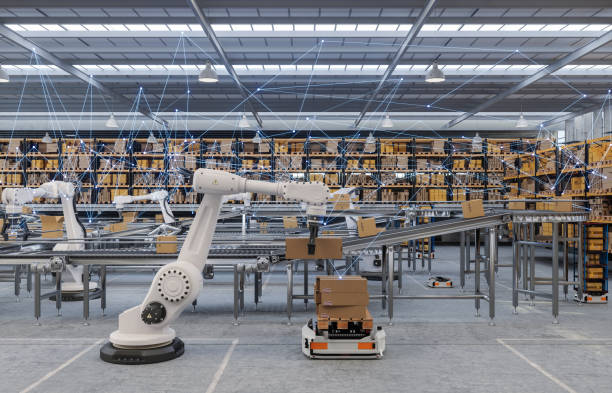Automation has been a driving force in revolutionising every industry worldwide. The field of logistics is no exception to this either. In fact, by the year 2032, the logistics automation market size is expected to witness a humongous growth, amounting to as much as 12% of CAGR.
From warehouses to transportation, innovative automation solutions are reshaping the logistics landscape. Let us take a look at how these innovations are taking place!
In this article, we will explore five such logistics automation innovations that are currently trending.
Artificial Intelligence and Machine Learning
Artificial Intelligence (AI) and Machine Learning (ML) technologies are significant in logistics automation. They empower systems to learn from data, make predictions, and consistently enhance decision-making processes across different facets of logistics.
For example, by leveraging the power of AI and ML algorithms, managers can optimise route planning and load consolidation. This not only lowers fuel consumption and carbon emissions but also strengthens overall sustainability initiatives.
Robotics
Warehouse robotic systems entail the deployment of automated machines and robots to execute diverse tasks, such as picking and packing, managing inventory, and even handling the loading and unloading of goods. This results in enhanced uptime and productivity compared to manual labour.
A noteworthy example of integrating robotics into logistics involves using Autonomous Mobile Robots (AMRs) to optimise the movement of goods within warehouses and storage facilities.

Internet of Things (IoT)
IoT has changed how logistics works, simplifying it to see, control, and improve efficiency in the supply chain. Devices like GPS trackers, RFID tags, and sensors with IoT technology are used to track where goods are, their condition, and their status during transit. These devices send real-time data to a central system. This means logistics managers get more accurate and current information about where things are, helping them track the progress of goods in the supply chain.
Another prevalent application of IoT in logistics involves utilising IoT-powered sensors for monitoring environmental factors like temperature, humidity, and vibrations. These sensors can be strategically placed in containers, warehouses, or vehicles to safeguard the quality and integrity of goods.
Warehouse Automation
Automated warehouse technologies mainly include Automated Guided Vehicles (AGVs), robotic picking systems, and Automated Storage and Retrieval Systems (ASRS). These technologies not only improve operational efficiency but also contribute to better accuracy, faster order fulfilment, and reduced labour dependency. For example, with the help of AGVs, businesses can easily navigate and transport goods within a warehouse or distribution centre. They can follow predefined paths or use guidance systems such as lasers or vision technology for navigation.
In addition to this, ASRS, or automated storage and retrieval systems, are also used to ensure accurate inventory management by automating the entire process, thereby minimising the risks of errors that usually come alongside manual handling.
Blockchain
Blockchain technology is being increasingly adopted in the logistics industry to enhance transparency, traceability, and security. By creating a decentralised ledger, blockchain ensures that every transaction or movement of goods is recorded and can be traced easily throughout the supply chain. It ultimately eliminates the need for extensive paperwork and manual record-keeping, thereby promoting accuracy and reducing administrative overhead.
Conclusion
From AI-driven decision-making to blockchain-enabled transparency, these innovations are not just trends but integral components of the future logistics landscape. The amalgamation of these innovations has significantly contributed to enhancing efficiency, and accuracy fostering innovation. As logistics providers persist in incorporating these technologies, the industry is on the brink of further advancements that will entirely reshape the global landscape for transporting and delivering goods.
Hoping to build a successful career in logistic management? Check out the Advanced in Supply Chain Management Certification Course offered by IIT-Roorkee in collaboration with Imarticus Learning. It is a 6-month program that covers interesting topics such as sales and operations planning, distribution network design, demand forecasting basics, and more.
So, hurry up and kickstart your career today with Imarticus!








